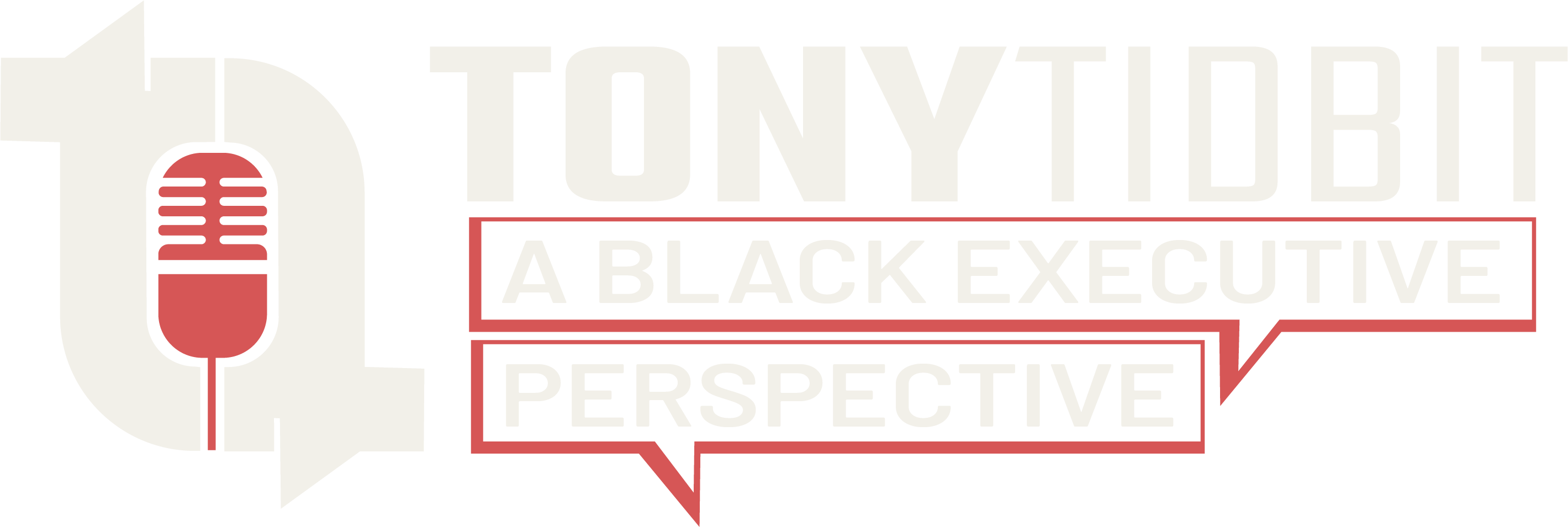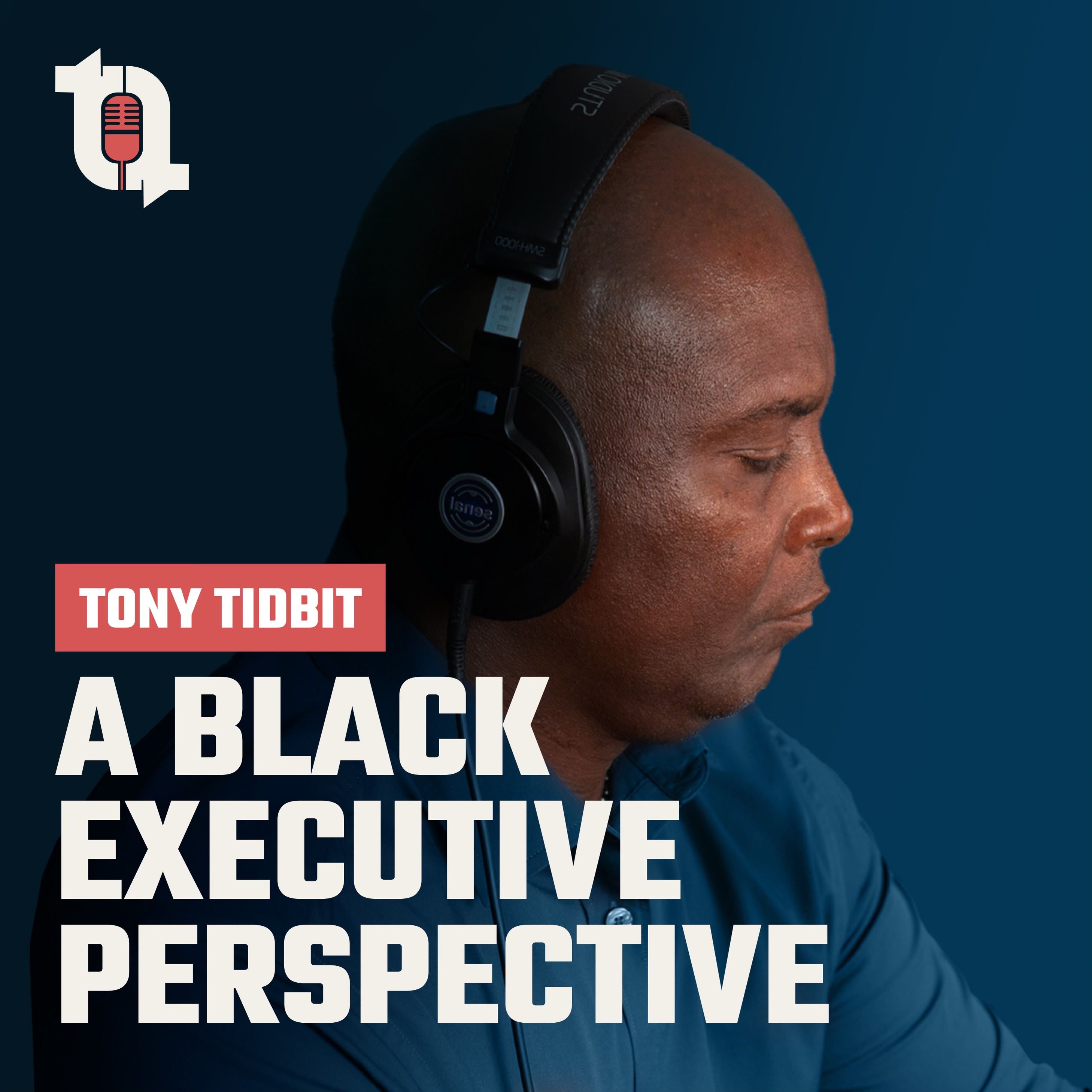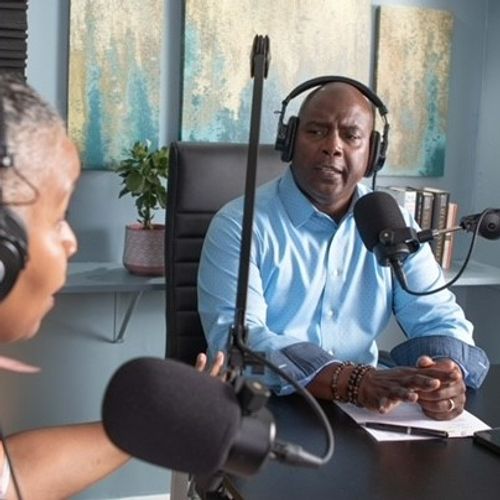Weathering Racism: When Forecasts Turn Deadly for Non-English Speakers
Episode Title:
Episode Audio Link: https://podcast.ablackexec.com/episode/Weathering Racism: When Forecasts Turn Deadly for Non-English Speakers
Episode Video Link:
In this searing episode of Need to Know with Dr. Nsenga Burton, we dive into the dangerous consequences of xenophobic policymaking, starting with the National Weather Service's decision to stop issuing weather updates in languages other than English. Dr. Burton unpacks how this seemingly bureaucratic move is, in fact, a life-threatening act of exclusion that puts millions, particularly non-English speakers and communities of color, at greater risk during natural disasters and emergencies.
She connects the dots between political ideology and public safety, revealing how language can become a weapon when wielded by power systems. With a sharp critique and a call to action, Dr. Burton urges listeners to stay alert, informed, and proactive in defending the right to accessible information for all.
This episode is a wake-up call: when warnings don’t reach everyone, it’s not just policy, it’s violence.
▶︎ In This Episode
00:00: Introduction and Welcome
00:17: Xenophobia and Language Policies
01:07: Historical Context of Language in the U.S.
03:03: Current Administration's Harmful Policies
05:31: Impact on Public Safety and Health
07:46: Call to Action and Conclusion
🔗 Resources
Links and resources mentioned in this episode:
🔔 Listen and Subscribe
Listen to this episode and subscribe for future updates
subscribe to A Black Executive Perspective podcast on
- YouTube Podcasts
- Apple Podcasts
- Spotify Podcasts
- Amazon Music
- Other platforms or by searching "TonyTidbit"
if you like what we're doing and would like to support us, here's some ways you can help us continue the uncomfortable conversations that drive change
- subscribe to our newsletter
- give us up to a 5 star review on Apple Podcasts
- share an episode with a friend, family member or colleague
🗣️ Follow @ablackexec
follow us across social media @aBlackExec
⭐️ Follow @TonyTidbit
follow Tony across social media @TonyTidbit
This episode was produced by TonyTidbit ™ . Copyright © 2024 A BLACK EXECUTIVE PERSPECTIVE LLC. All rights reserved. No part of this podcast may be reproduced without prior written permission. For permissions, email podcast@ablackexec.com .
Transcript
A Black Executive Perspective.
2
:Now presents need to know with
the award-winning hyphenated Dr.
3
:Nsenga Burton, Dr.
4
:Burton.
5
:What do we need to know?
6
:Dr. Nsenga Burton:
7
:Good afternoon and welcome
to Need To Know with Dr.
8
:Nsenga Burton.
9
:I am she.
10
:And today we are going to be talking
about, um, that person whose name,
11
:uh, we don't say so we're just gonna
say the number 45 or 47 and all of
12
:the things that have happened or
transpired as it relates, um, to.
13
:This kind of x xenophobia, xenophobia that
he has around people who are not white.
14
:So, um, one of the things, um, that
just recently happened is that, um, the
15
:weather service, and we know we've been
doing a whole bunch of stuff that's
16
:gonna negatively impact the weather
service anyway, but in this case, I
17
:wanna talk about the weather service,
no longer giving out information
18
:in languages other than English.
19
:So we have a nation.
20
:Um, English is not the official
language of the United States.
21
:We don't have an official language
because the idea behind the United
22
:States is that we have one country
made up of many different types
23
:of people, uh, before 45 and 47.
24
:And I would argue, um, even with
the founding fathers, if that's
25
:the term you wanna use, are people
who are, uh, now our ancestors.
26
:Were in play.
27
:This country was founded for people, um,
who wanted to have a greater idea, um,
28
:who wanted to realize democracy, right?
29
:They wanted to have certain
freedoms that were not afforded
30
:to them in other countries.
31
:They were able to come here and
practice their own, um, you know,
32
:whatever religious they had, um,
whatever, uh, belief system they have.
33
:Um, whatever languages they speak and
whatever culture they have, as long as it
34
:did not infringe on the rights of others.
35
:So, uh, we did that very well.
36
:You know, even with all of the
segregation, Jim Crow, all the other
37
:things, um, there were cities, um,
especially in cities, and I would say like
38
:if you look at places like, uh, Louisiana.
39
:North Carolina and so forth and so on,
even in the rural areas where you have
40
:a lot of, uh, cultural mixing, um,
during those time periods where people
41
:coexisted peacefully, they intermarried,
they did all things, um, and were
42
:able to really just be who they were.
43
:So there was no, uh.
44
:Reason to have an official language.
45
:Uh, and there still isn't.
46
:I mean, like if you look at a
country like South Africa, they
47
:have 11 official languages.
48
:Uh, well, a country that size
with the number of people that
49
:they have, that might make sense.
50
:They have cultural practices.
51
:They're very, very different
in many particular ways.
52
:Um, so that might make sense.
53
:Um, and even if we had an
official language here in the
54
:United States, it probably would
be Spanish or it should be, um.
55
:English and Spanish.
56
:Um, and depending on which part
of the, the country you live in,
57
:it could be other languages too.
58
:Um, so my point is in raising
this issue is that this whole.
59
:Attempt and, and they're pretty
effective in certain ways of this
60
:administration to erase people of color.
61
:Um, in general, I would say black
people specifically, 'cause that's
62
:what I'm watching most clo closely,
but people in gen, people of color in
63
:general, um, in this particular phase.
64
:And by saying, no, we're not gonna give
you information that can save your life.
65
:Your native tongue or in a language
that you may be able to speak
66
:or better decipher so that you
have a better chance of survival.
67
:It's just, uh, another form
of violence, uh, that this
68
:administration, uh, has put forth.
69
:And so the Trump administration
is being lambasted for a lot of
70
:things right now, but they are also
trumpeted, ha ha ha, pun intended.
71
:Um, because they inflict pain.
72
:On people.
73
:Right?
74
:It's a, it's a, it's a kind of a
trauma porn type of experience.
75
:We had it in 45, you
in:
76
:We saw this already.
77
:We've experienced this already.
78
:How much pain can we inflict on people?
79
:You know, we're like, oh my gosh, can
you believe they're just ripping people
80
:out of cars and taking them in and not
even seeing if they're even citizens.
81
:And if they're citizens and they're
deported, is sent somewhere else
82
:and they find other citizens and
they're not even bringing them back.
83
:Can you believe that?
84
:Well, of course we can believe that.
85
:'cause they had children in cages.
86
:In 2016, 2017.
87
:But you know, our
memories are really short.
88
:We forgot about that.
89
:Oh, can you believe that?
90
:You know, more children are dying
of measles than ever before.
91
:It had been completely eradicated,
but since we've had this anti-vax
92
:movement that these poor little
kids are sick and they're dying.
93
:Yeah, we had over a million
people die with Covid.
94
:It was preventable.
95
:It was preventable.
96
:People forget that part about Covid.
97
:Oh, we had no choice.
98
:There was nothing we could do about it.
99
:Oh, there's plenty we could do about it.
100
:It never had to get here.
101
:It never had to be here.
102
:Um.
103
:And so when you think, I don't know
why people keep waiting for the best
104
:possible scenario to happen, it's
just not going to happen under 47.
105
:Part of their mission, part of
their goal, part of their identity
106
:is inflicting pain, right?
107
:It's a very violent
approach to leadership.
108
:It's like, how much violence
can we inflict on people?
109
:And you know, just because they're not
shooting people down the streets yet.
110
:I'm sure that will come because it
looks like that's where we're headed.
111
:But just, you know, a lot of people think
about physical, physical violence, but I'm
112
:talking about emotional violence, right?
113
:Or policies that you do,
um, that you enact, like.
114
:You can no longer do the National Weather
Service announcements in any L language
115
:other than English, even though we
have large populations of people that
116
:live in the United States where English
is not their first language, and so
117
:they will not know what is going on.
118
:Um.
119
:If they don't have their, uh,
closed captions on, if they don't
120
:have a television, let's say
they're listening to the radio,
121
:what if they're hearing impaired?
122
:Like, there's a lot of like scenarios.
123
:So instead of doing the least
amount that you can do, IE, we're
124
:only gonna do them in English.
125
:You should do the most right to make
sure you reach the largest number of
126
:people so that you know people now who
are surviving floods, dying in floods.
127
:You know, people are, are
surviving, some of them people
128
:who are dying in these tornadoes.
129
:Um, for some reason those people
are not getting the information.
130
:Some people, you know, we
see those people on the news.
131
:They're like, I'm just gonna board it up
and pray, or Good for you, or whatever.
132
:But if that's what you wanna do.
133
:But if you are someone who wants
to, uh, comply and to get out
134
:of these poor weather situations
and they're coming so much more
135
:frequently, so why would you do less?
136
:It's because you're a violent person.
137
:You, you're violent in nature.
138
:A violent person wants to remove
Harriet Tubman from a website.
139
:Um, when you're talking about the history
of the United States of America, every
140
:Harriet Tubman should be everybody's hero.
141
:Everybody, regardless of race, class,
gender, sexual identity, all things
142
:Harriet Tubman should be celebrated.
143
:So why you would remove her
and then have to be beaten down
144
:to put her back is beyond me.
145
:But I'm gonna stay on fo uh, on track.
146
:I want you to know what you need
to know is that the people who are
147
:in charge and that you sometimes,
um, give your vote to willingly and
148
:then those of us who don't, and then
have to live with the consequences.
149
:There are real consequences
to what you are doing and what
150
:you are not doing and what is
happening with this administration.
151
:And it goes beyond what you're
seeing in the headlines.
152
:You know, there's so much
stuff going on, um, and.
153
:You know, you could call it chaos
theory, depending on what, what
154
:theory you wanna, uh, use, um,
where there's so much going on, you
155
:don't know what to pay attention to.
156
:But do believe that any and all
opportunities they have to subjugate,
157
:oppress, demean, or cause pain to
immigrant groups, to people of color,
158
:they are doing it and they, they're
now using the weather service to do it.
159
:So I need you to know
that this is happening.
160
:So if you have someone in your life, let's
say maybe you are raised in a household
161
:where you are the first English speaker
in the household, please make sure that
162
:you're in contact with your relatives,
friends, family members, colleagues, or
163
:whatever, um, so that you can help them
be safe during these perilous times.
164
:I mean, to do this.
165
:Especially during the tumultuous time
between the fires and California,
166
:the flooding all over the country.
167
:Uh, it's just, there's no reason
to do this other than to inflict
168
:pain and harm, which is part of
this administration's motto, right?
169
:Their mission, their
their, uh, modus operandi.
170
:That is what they do.
171
:They inflict pain and torture, so.
172
:I need you to know that there's going
to be more types of violence coming,
173
:whether it's physical violence,
whether it's emotional violence, um,
174
:whether it's psychological violence.
175
:Uh, there's lots of different types
of violence, but violence is the word
176
:of the day and is the order of this
administration in any way, shape or form.
177
:So you have to stay abreast.
178
:You cannot tune out, you cannot
turn off, you don't have to march in
179
:the streets, but you do have to pay
attention and you have to make sure.
180
:Um, that you are staying abreast of
all of the changes that are coming that
181
:will affect you and those you love.
182
:And those of us who have empathy,
we may not know you, but we would
183
:like for you to be okay in these
types of weather circumstances.
184
:So tune in next Thursday to
another Need to know with Dr.
185
:NNsenga Burton.
186
:And of course you have
to tune into another.
187
:The award-winning a Black
Executive Perspective podcast with
188
:Tony Franklin, who was amazing.
189
:Um, and learn some more information
that you need to know in order
190
:to help you have a better life.
191
:I will see you next week.
192
:Bye.
193
:Thank you.
194
:BEP Narrator: A Black
Executive Perspective.





